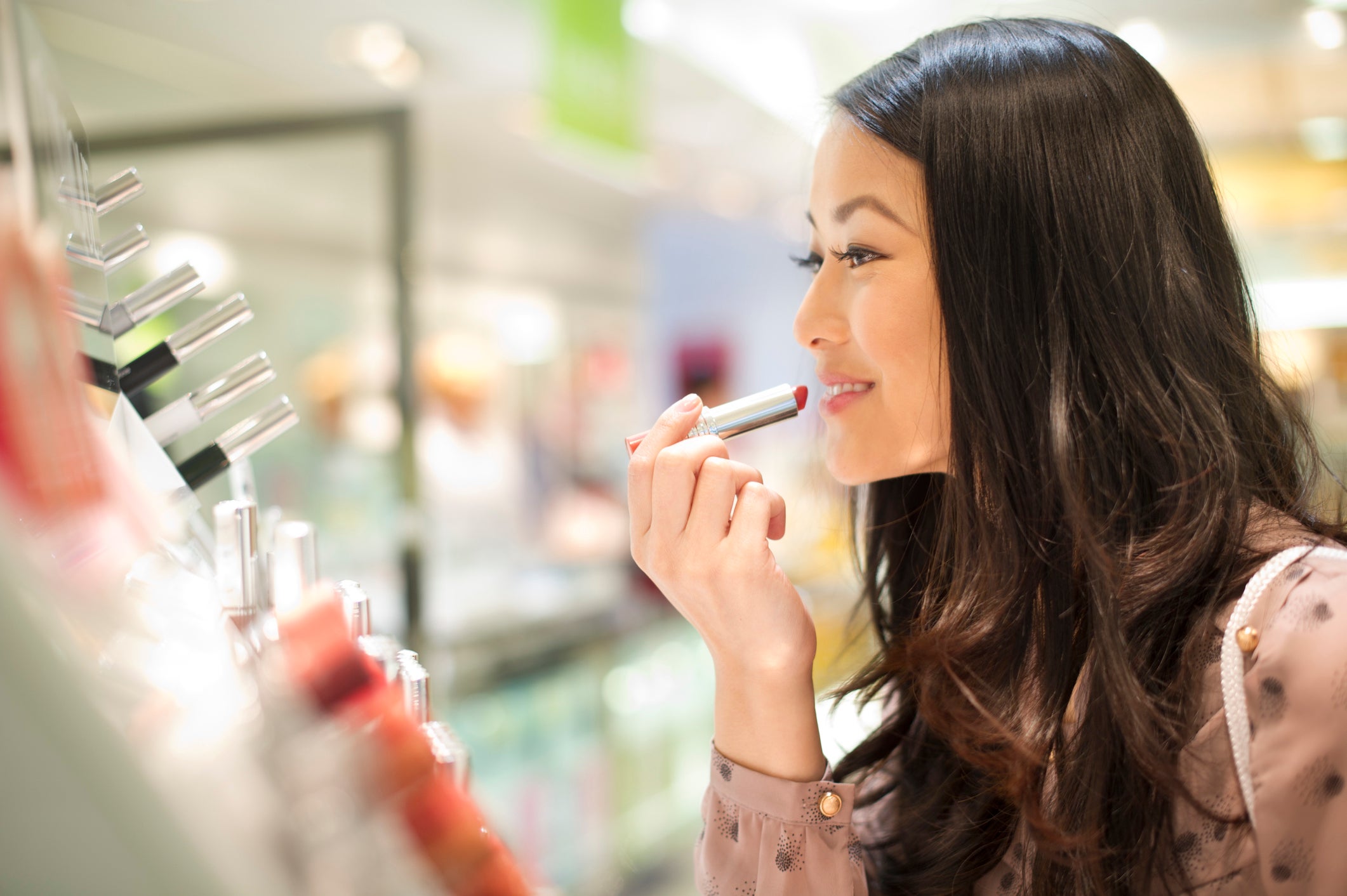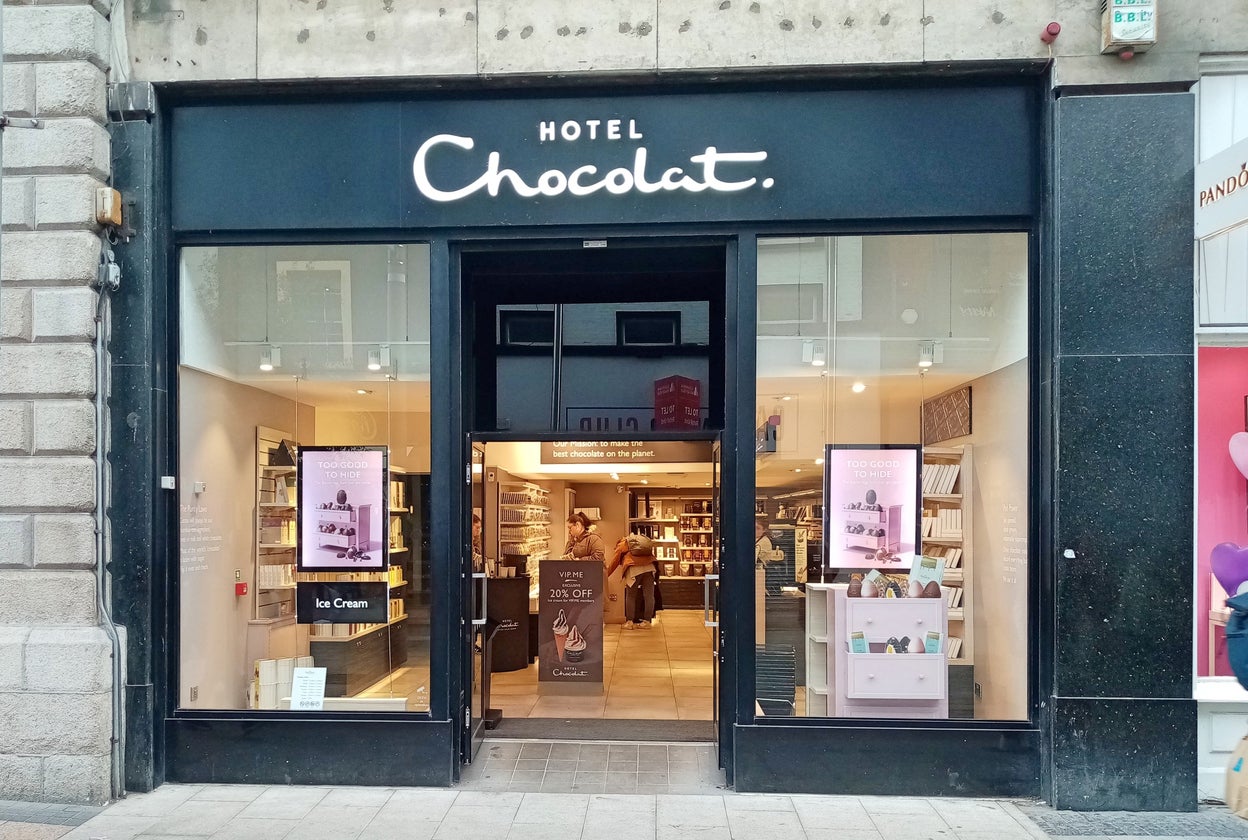The Independent's journalism is supported by our readers. When you purchase through links on our site, we may earn commission.
The Lipstick Effect: Do we need to be wary of ‘treating’ ourselves to little luxuries during a recession?
There’s a theory that we hanker after small luxuries during times of economic hardship. Helen Coffey digs into the reality of our spending and asks whether we should be resisting temptation


Your support helps us to tell the story
This election is still a dead heat, according to most polls. In a fight with such wafer-thin margins, we need reporters on the ground talking to the people Trump and Harris are courting. Your support allows us to keep sending journalists to the story.
The Independent is trusted by 27 million Americans from across the entire political spectrum every month. Unlike many other quality news outlets, we choose not to lock you out of our reporting and analysis with paywalls. But quality journalism must still be paid for.
Help us keep bring these critical stories to light. Your support makes all the difference.
The Lipstick Effect (or Lipstick Index) was a theory first posited by, unsurprisingly, a purveyor of lipstick. In 2001, in the aftermath of 9/11, Estée Lauder chairman Leonard Lauder noticed a marked uptick in sales of lipstick. He came to the conclusion that products like lipstick were a good gauge of the economy: in times of slump, purchases of smaller luxuries get a boost, he proposed. A proportion of society will still want to treat themselves, but money’s too tight to splurge on life’s bigger aspirational items. Designer handbags may be out, but having an immaculate face is within reach.
It might be more than 20 years old, but the concept captured the consumer consciousness to such an extent that it’s been wheeled out as a marker during subsequent economic downturns, most notably after the banking crash and global recession of 2008. A flurry of articles appeared, including a New York Times piece called “Hard Times, but Your Lips Look Great”. The theory resurfaced again as recently as 2022, when market research firm Kantar Worldpanel found that UK sales of lipstick were nearly 10 per cent higher year-on-year in the 12 weeks leading up to 18 September.
Several studies and observations have supported the existence of the Lipstick Effect, according to Zubin Sethna, professor of entrepreneurial marketing and consumer behaviour at Regent’s University London and author of Consumer Behaviour. Although he warns that it’s “not a universal law and may not apply in all situations or for all consumer products” – factors such as cultural norms and the nature of the economic downturn will have an impact – Professor Sethna says it provides “an interesting insight into how consumer behaviour can adapt during challenging economic times”.
It’s an intriguing hypothesis given the news that the UK has slipped into a recession. The theory “does have some merit”, agrees Philip Graves, a consumer behaviour consultant and author of Consumer.ology, who sums it up thus: “People still want to satisfy psychological desires when times are hard, so will look for ways to spend that make them feel good. But they will recalibrate this spending to adapt to the economic situation and – perhaps just as importantly – the economic sentiment, which provides social proof of what other people are doing.”
Richard Shotton, author of The Choice Factory, a bestselling book on how to apply findings from behavioural science to advertising, concurs that “what other people are doing” has a big impact on our spending habits. “We are a herd species that’s deeply influenced by what other people do – so if we see that a particular product is popular, we are more likely to consider buying it ourselves. That means a small increase in popularity can actually lead to a product becoming much more successful.”
So, is the Lipstick Effect happening during our current financial squeeze? If you look purely at cosmetics, a third (32 per cent) of UK makeup buyers claim they have purchased a product to “treat themselves” in the last year, according to data analysis from global market intelligence agency Mintel. The percentage of women buying lipsticks also didn’t dip in 2023, despite cost-of-living belt-tightening, while spend is similarly up – projected to have risen by 12.3 per cent last year.

Purchases of colour cosmetics – the umbrella term for make-up products designed for skin, cheeks, eyes and lips – also climbed in 2023, with market spend projected to have grown by almost 8 per cent to £1.84bn.
Although Lauder originally coined the term based on lipstick, it might be better rebranded as the “indulgence index”. After all, if the trend is tracking spending on smaller indulgences, it surely encapsulates more than make-up – fancy chocolate, barista-made coffees and takeaways could all be included in the “life’s little luxuries” portfolio.
“During difficult economic times, consumers are on the lookout for products that can give them a taste of luxury without breaking the bank,” says Francesca Smith, senior consumer lifestyles analyst at Mintel. “This manifests in different ways across a range of categories, but there’s always a strong emotional drive behind these purchases, whether that’s providing a much-needed mood boost, escapism from daily stresses or some light-hearted fun. Chocolate is an affordable way for consumers to treat themselves, providing an instant pick-me-up, with 68 per cent of chocolate buyers agreeing that eating chocolate is an affordable way to boost your mood.”
She also highlights an uptick in underwear purchases, which “provide that feel-good factor and a boost to confidence, particularly among women”. In October 2022, 35 per cent of adults had purchased underwear in the past three months – this had risen to 41 per cent by October 2023.
During difficult economic times, consumers are on the lookout for products that can give them a taste of luxury without breaking the bank
Although recent trends during the cost of living crisis in the UK have mirrored the classic Lipstick Effect, with consumers gravitating towards affordable luxuries, the specifics of these purchases have evolved, agrees Professor Sethna. “Technology, wellness products and sustainable goods have gained prominence alongside traditional luxury items like cosmetics,” he says, giving the example of success stories including Hotel Chocolat, Craft Gin Club and Nespresso. “This shift reflects broader consumer values and the digitalisation of comfort and convenience.”
There’s precedence to back up the theory that people swap to cheaper indulgences when times are tough – Graves says that, historically, we’ve seen people switch from eating out to having takeaways, because “they still want the indulgence of not cooking but want to substitute it for a cheaper (but not cheap) alternative”. He adds: “As a consumer psychologist I would expect to see this type of framed behaviour, meaning choosing something less expensive than a current choice, rather than absolute behaviour, which means choosing the cheapest option. The latter is too cognitively demanding.”
Shotton cites several studies that back up the idea that people choose the “cheaper” middle option during times of recession. Officially termed “extremeness aversion” but sometimes referred to as the “Goldilocks effect”, it was first proven by cognitive and mathematical psychologist Amos Tversky in the Nineties. He set up an experiment in which a group of people were told to choose between buying a cheap camera and a more expensive one with more features – the result was an almost exact 50/50 split. He did the same thing again but added in an even pricier premium option. Few people picked the expensive camera, but the number of people who chose the mid-range rather than the cheapest variant shot up to three to one. Brands have even cynically cottoned onto this: it’s why, in times of recession, they will seemingly counter-intuitively launch a super-premium version of their product. They know it won’t sell, but more people will opt for the perceived “middle” option – consumers unconsciously believe they are saving money by swerving the costlier choice.

A friend recently mentioned to me how impossible it was to even imagine saving up for a house deposit or other big purchases. As cost of living rises continue to undermine financial security, she said, the very notion of accumulating tens of thousands of pounds felt laughable. Instead, she spends the little disposable income she has on enjoying herself in the here and now, indulging in takeaways, drinks out, nice hand soaps and candles. It’s been compounded by the news that the retirement age is continuing to go up; “Clearly I’m never going to be able to stop working,” she said, “so I’d rather spend my money on things that make me feel good. Ironically, I think I’ve gotten worse at saving since the cost of living crisis. It feels pointless.”
Evidently, this isn’t the most responsible behaviour – but it is understandable. The psychological underpinnings of the Lipstick Effect are deeply rooted in how consumers seek emotional gratification and comfort during stressful times, says Professor Sethna. “Indulging in personal rewards, such as small luxury purchases, during periods of financial strain, offers an accessible form of temporary escapism and a tangible sense of pleasure without the financial burden of larger investments and can trigger a dopamine rush and provide a psychological lift.”
There’s also robust research to prove that burying our heads in the sand when times are tough is human nature. Shotton tells me about the “Ostrich Effect”, best demonstrated in a Carnegie Mellon study that found people checked their stocks and shares portfolios far less when they weren’t performing well. This behaviour isn’t rational – knowledge pertaining to how well your investments are faring is equally valuable whether they’re rising or falling – but if something causes us pleasure, we do it more, and if it causes us pain, we do it less. If your personal finances cause you pain, there’s a tendency to adopt a fatalistic approach, stop checking your accounts, and purchase something that makes you feel good in the short term.
It’s interesting that in times of economic uncertainty, the great allure of small indulgences can often hold a mirror to the resilience of the human spirit
To counteract the urge to splurge, Graves advises creating one or two money saving rules of thumb. For example, don’t buy anything online during the week; any time you spend money on something discretionary, put the same amount of money into a separate savings account so that it feels like it’s costing you twice as much; and unsubscribe from any emails from retailers and brands, especially the ones that advertise sales.
“It’s interesting that in times of economic uncertainty, the great allure of small indulgences can often hold a mirror to the resilience of the human spirit,” concludes Professor Sethna. “However, it’s important to recognise that relying solely on retail therapy or indulgent purchases as a coping mechanism for financial strain may not be sustainable in the long term and could potentially exacerbate financial difficulties. It’s essential to practise responsible spending habits and seek healthier coping mechanisms, such as engaging in hobbies, exercise, socialising, or seeking support from friends and family, to manage stress and maintain overall wellbeing.”
The moral of the story? If you find yourself ostrich-ing, it might be time to get your head out of the sand and start becoming more intentional in the way you spend. While money can’t buy you love, a lipstick certainly can’t buy you long-term happiness.
Join our commenting forum
Join thought-provoking conversations, follow other Independent readers and see their replies
Comments